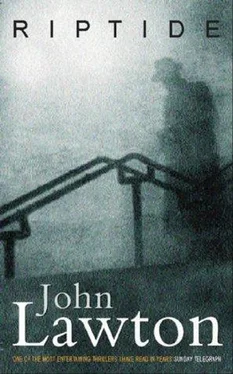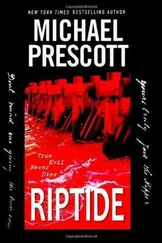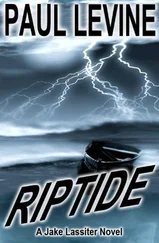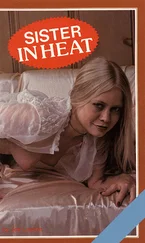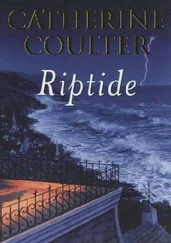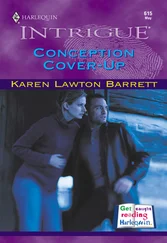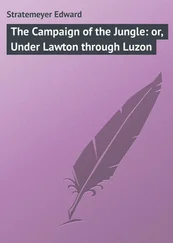‘I don’t,’ Cormack said.
‘Figures,’ said Troy, and it was Cormack’s turn to smile. ‘Why don’t you just tell me what you know?’
As Cormack told his tale, Troy found himself responding to it with a prism of feeling-to the end of the rainbow and all the way back again. He’d never understand the spooks if he lived to be a thousand. It seemed to require a degree of patriotism he could not imagine, a faith in one nation that defied intelligence. At the same time it was the biggest lie of all-all spooks were playing parts, all spooks were liars. Who, Troy wondered, did they see when they looked in the mirror?
Such dedication was a part of his father he did not understand. He would not level a simple charge of patriotism at his father-he would only reply with Johnson’s tart words if he did-but throughout his father’s long opposition to Stalinism he had seemed to retain an almost mystical faith-was that the word?-in the Russian people. Troy could not share that either. And as Cormack recounted the personal nature of the tragedy-the two Stilton boys blown to smithereens, old Walter himself cruelly murdered-it was impossible for his love of Kitty not to seep through. It popped every stitch and staple the man had put into controlling his feelings. Troy thought an age ago, before Christmas, so much younger then, that he too might have loved Kitty, but she had not given him the chance. Listening to the heartbreak in Cormack’s voice was like listening to a version of himself he’d sloughed off like a snake shedding skin.
‘What’s Stahl like?’ Troy asked.
Cormack reached for his wallet. Pulled out a piece of shiny paper, folded in quarters, and passed it to Troy.
‘Walter had me do this. I talked, the artist drew. It’s not a bad likeness.’
Troy found himself looking at the face of a mythical hero-the Wagnerian features that made up the elusive, nonsensical Aryan ideal.
‘I meant as a person.’
Cormack seemed to have to mull this one over. Odd, thought Troy, it can hardly require a deal of thought.
‘You know,’ he said at last, ‘Walter never asked me that. I worked side by side with Walter for more than two weeks, and he never asked me that.’
‘He wouldn’t, would he? Walter was in the Branch. He dealt in certainties and he dealt in facts. I’m in Murder. Facts don’t kill people. People kill people.’
‘I met him only a few times-but I read endless letters from him. And I do mean letters, not just reports. You could say it’s a rash conclusion, reading too much between the lines, but whatever Wolfgang Stahl really was, he buried long ago. The man I knew was a man he invented. He chose the code name himself. Tin Man. Hollow. He wasn’t kidding. I think Wolf was probably a talented, considerate man. The Tin Man lacked heart. It was as though he’d taken a Bowie knife to the inside of his skull and scraped his emotions back to the bone.’
Troy had not expected to hear his own words repeated back to him quite so soon, and quite so precisely, if at all. But this was his cue.
‘Let me recap. The Tin Man killed the Dutchman.’
‘Yes.’
‘You killed the German.’
‘Yes.’
‘And do you think there’s a third man at large? And that the Third Man killed Walter?’
‘I know what you’re saying. It doesn’t make sense. It’s… well, excessive. To mint a phrase, it’s overkill. But who else?’
‘Have you considered the possibility that the Tin Man killed Walter?’
Clearly he hadn’t. The pain on his face was sharp as etching.
‘No. No. I hadn’t. Truth to tell, it doesn’t bear thinking about. It’s the saddest thought I ever had to think. Worlds have collapsed for less.’
‘Captain-I’m not telling you the tooth fairy doesn’t exist, I’m just reiterating what you told me. Stahl is trained in all this malarkey. As capable of breaking a man’s neck as of shooting him at close range and vice versa.’
‘I know. Believe me I know. It’s just that in this scenario I seem to have taken on the role of the Cowardly Lion. I guess I’m shocked. Stahl and I were on the same side. Walter and I were on the same side. Stahl was my working life. Almost my raison d’etre. And Walter Stilton was the kindest, sweetest man I ever met. Here…’
Cormack dug into his inside pocket and pulled out an envelope.
‘See. Always the joker. Always a smile on his lips.’
Troy took in the letter at a single glance. The note that had become Walter’s death warrant-and there at the end ‘Wot larx’.
‘He was always saying that. A grin as wide as the Chesapeake Bay when he said it. And I still don’t know what it means.’
Troy did. It was the first thing that looked even remotely like a clue.
They had talked away the day. Supped his week’s tea ration. It was still light, but it was close to nine in the evening. Troy was flagging badly. He dearly wanted an early night.
‘Forgive me if I don’t show you out-arm’s playing up a bit-but you’ll have no difficulty finding a cab in the Lane.’
‘I was thinking of taking the subway. I’ve never actually been on it.’
‘Underground,’ said Troy. ‘Tube at a pinch, not subway. Turn right at the end of the court and head up to Tottenham Court Road. Perfectly straightforward. Central Line. Two stops to Bond Street and you’re home. Be warned, it’ll be filling up already.’
‘Filling up?’
‘Shelterers. They tend to bag their places early. Nobody waits for it to get dark anymore.’
‘But there hasn’t been a raid in weeks. Not since early May.’
‘I doubt that Londoners think a few weeks’ respite means it’s over.’
Cal had always had a little difficulty with right and left. It seemed to go with eyeglasses and a generally poor co-ordination. The only two physical skills he had ever mastered were the bicycle and sexual intercourse, and he wasn’t too confident about either of those. Emerging from Goodwin’s Court, he turned left, and walked off in the direction of Trafalgar Square. Missing the subway sign he walked on-past Charing Cross railway station and down to within sight the river. He realised he was lost. Surely Troy would have mentioned crossing the river? But-there was another subway station. Its route map made no sense to him. Something from the Modernist school-a Mondrian or some such. A mass of coloured lines and precisely graded angles and countless interlocks, dozens of them, maybe even hundreds. He asked at the ticket booth.
‘Bond Street, guvner? You want the Bakerloo. Change at Oxford Circus.’
Bakerloo. That was easy. It was what you got when you married Waterloo to Baker Street. But he could have sworn Troy said Central-and he certainly hadn’t mentioned any changes.
The depth was startling. Washington had no subway. New York’s ran in trenches just below the surface, bolted to the Manhattan bedrock. This system required two escalators to take you down to an oppressively narrow tunnel, from which the train emerged as closely fitted as a cork in a bottle. He took a northbound train, sat in a completely empty car-he’d never seen a padded cell, but this could well resemble one-and stared at the map above the long row of seats. The train pulled into Trafalgar Square. He’d just about got the hang of it now. He’d found Bond Street on the map, though he still wasn’t wholly sure where he had gone wrong. A man got in-black hat, black suit-and sat opposite Cal, clutching a folded newspaper. Cal gave him the merest glance-the English were not inclined to impromptu chats with strangers-and went back to the map-still looking for the proof of his own error-how had he managed to miss a string of words as long as Tottenham, Court and Road?
Читать дальше
